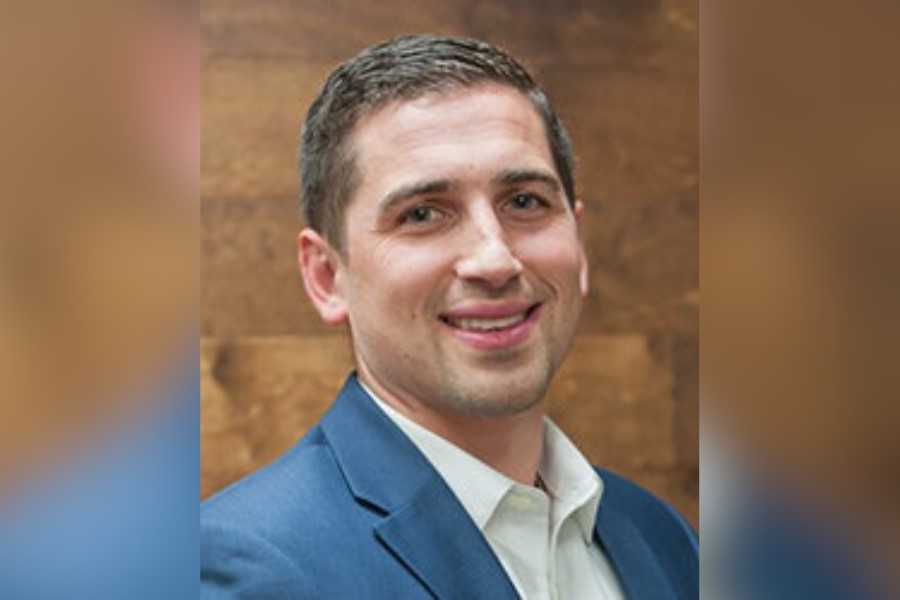

One of the main reasons Connor Kavanaugh began working with special needs clients was the challenges that surround those who have a disability.
“If you can only imagine your son or daughter will never be gainfully employed, or live independently, or get married, you're going to be a little bit more thoughtful about how you approach things,” said Kavanaugh, managing partner and special needs planner at Palladio Consulting in Lake Oswego, Oregon. “Not only in your own finances, but also the care and the support system for the individual.”
There is also the burden of having to take care of the individual, he noted. It’s also a population that “anyone can enter at any time.”
“Any one of your clients could be dealing with this at a moment's notice,” Kavanaugh said. “Whether they have a grandchild that's diagnosed with Down syndrome at birth, or they themselves get in a car accident that leaves them disabled.
“It's the largest minority group, it's the most underserved and misunderstood, and it's the one group that any one of us can enter at any point in time. It's an incredibly important niche, just for that sole fact.”
While the average family without a special needs individual will be focused on things like saving for retirement or post-secondary education, or filing for Social Security, Kavanaugh says that a special needs family could be facing “10 or 12 in a month, or hundreds in a year, of situations that arise in which they are looking for resources and information.
“We've done a good job in the last 12 years of understanding what those challenges are and then creating solutions around it and being able to clearly articulate how we can help and, most importantly, actually spending the last 10 or 15 years understanding these very specific benefits or programs,” Kavanaugh said.
He began working in special needs planning in 2012 with an insurance broker-dealer, then went independent and set up Palladio, which is an RIA, in 2020.
There are several benefits for special needs clients to take advantage of. Two of the main – and complex – ones that the US offers are Social Security and Medicaid. Almost all of the firm’s clients are on one of those two benefits, Kavanaugh says.
“When they're on those benefits, you need to be working with an advisor who understands the application process, the eligibility, the reporting requirements, what are the actual benefits and how do they impact the individuals? That's really where we can provide a lot of expertise, is helping a family navigate through all that.”
The most rewarding aspect to serving special needs clients, Kavanaugh said, is that the benefits, and Medicaid in particular, are “truly life-changing.”
“To see a family not receiving these benefits, and outlaying hundreds of thousands of dollars a year to support their individual, only to apply for Medicaid and have that covered by their child's Medicaid eligibility, is without a doubt life-changing.”
Kavanaugh’s clients are mostly nearing 60 years old, and 75 percent of them have a disability like Down syndrome, autism, or cerebral palsy. The remaining 25 percent, he says, have a learning disability, a physical disability, or an intellectual or developmental disability.
“We're typically working with the parents, the trustee, or the guardian or the support system of the individual,” he noted. “It’s not often we're working directly with the individual, but we have.”
As for what services are needed the most, Kavanaugh says that a lot of the time is spent discussing the government benefits planning, and helping families think about the confluence of their retirement and the funding of a special needs trust.
When it comes to estate planning, setting up custodial accounts and supporting children or grandchildren that have disabilities, he said advisers need to be asking questions to make sure they're not unknowingly setting up a financial plan for family that could adversely impact the individual.
“For a Social Security benefit [called SSI], you have to be under $2,000 in assets to qualify for that benefit,” he noted. “Let’s just take a situation that if Aunt Jenny wants to leave behind 100 percent of her estate to her niece that has Down syndrome, there's gonna be a million-dollar check written to a disabled individual on needs-based benefits. That million-dollar check will be well over that $2,000 asset limit, so that individual is now no longer eligible for services. That's a huge issue.”
The most important thing for advisors to consider, Kavanaugh says, is to not only know the concerns and pain points of the clients but also to know what questions to ask, in addition to asking, ‘Are there any disabled children or loved ones that we should take into account when building your financial plan?’
“I get planners that ask me all the time, ‘What's the language I should be using? I want to make sure I get this language right because I don't want to offend them by asking them a question about their son or daughter.’
“I say the language doesn't need to be perfect. The family cares far more about that you're hearing their needs and asking the question than if you're using person-first language,” Kavanaugh said.
Name: Connor W. Kavanaugh
Position: Managing partner and special needs planner
Company: Palladio Consulting
Founded: 2020
AUM: $76.1 million

Relationships are key to our business but advisors are often slow to engage in specific activities designed to foster them.

Whichever path you go down, act now while you're still in control.

Pro-bitcoin professionals, however, say the cryptocurrency has ushered in change.

“LPL has evolved significantly over the last decade and still wants to scale up,” says one industry executive.

Survey findings from the Nationwide Retirement Institute offers pearls of planning wisdom from 60- to 65-year-olds, as well as insights into concerns.
Streamline your outreach with Aidentified's AI-driven solutions
This season’s market volatility: Positioning for rate relief, income growth and the AI rebound
